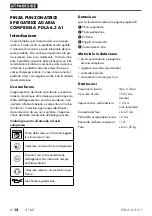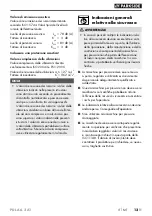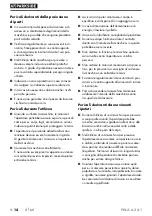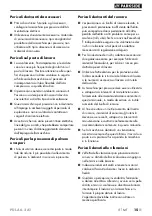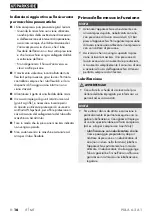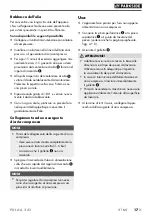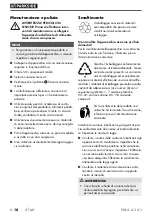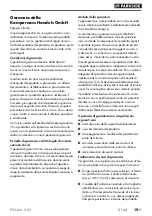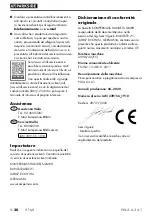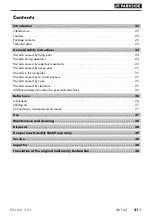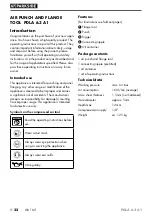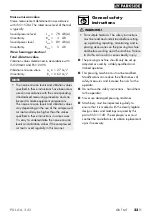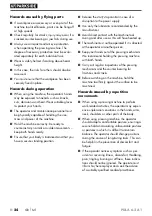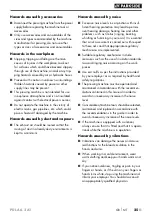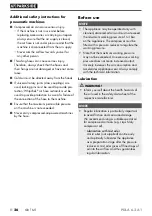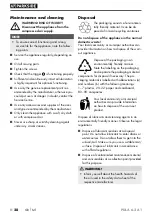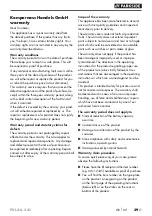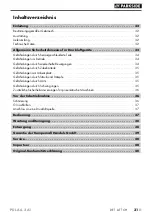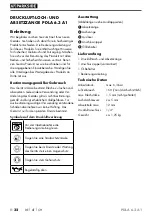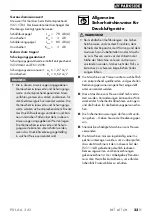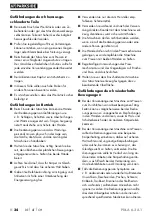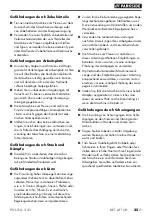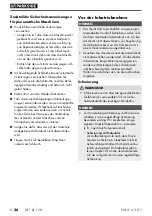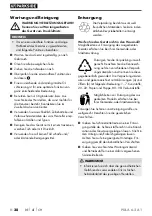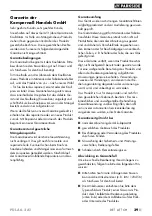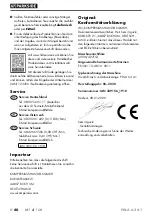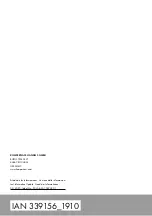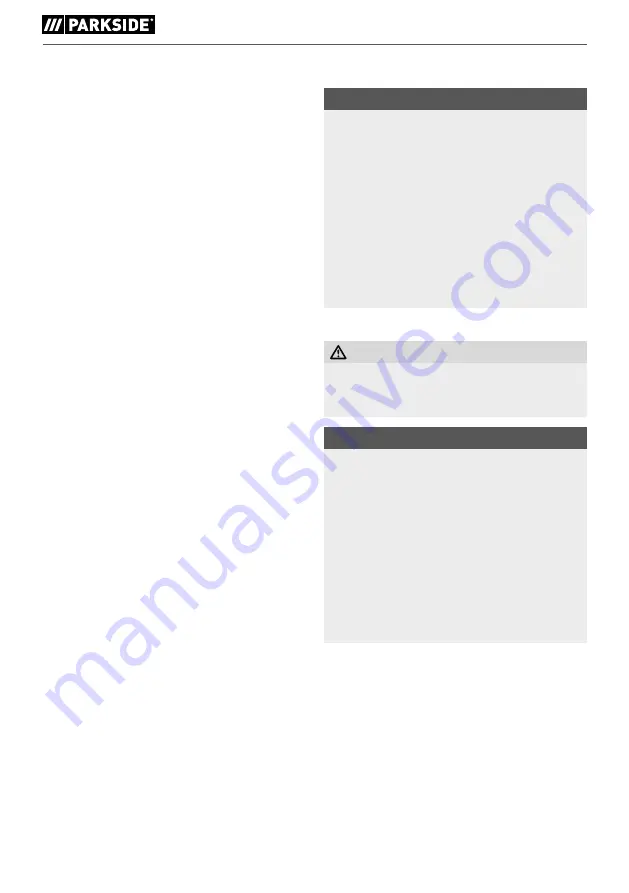
PDLA 6.3 A1
■
26
│
GB
│
MT
Additional safety instructions for
pneumatic machines
■
Compressed air can cause serious injury.
–
If the machine is not in use and before
replacing accessories or carrying out repairs,
always ensure that the air supply is closed,
the air hose is not under pressure and that the
machine is disconnected from the air supply.
–
Never aim the airflow towards yourself or
any other person.
■
Thrashing hoses can cause serious injury.
Therefore, always check that the hoses and
their fixings are not damaged or have not come
loose.
■
Cold air must be directed away from the hands.
■
If universal rotary joints (claw couplings) are
used, locking pins must be used to provide pro-
tection; Whipchek
®
air hose restraints must be
used to provide protection in case of a failure of
the connection of the hose to the machine.
■
Ensure that the maximum permissible pressure
on the machine is not exceeded.
■
Never carry compressed-air-powered machines
by the hose.
Before use
NOTE
►
The appliance may be operated only with
cleaned, atomised-oil air and must not exceed
the maximum working pressure of 6.3 bar
on the appliance. The compressor must be
fitted with a pressure reducer to regulate the
working pressure.
►
Note that the maximum working pressure
may not be exceeded. An excessive working
pressure does not mean increased output;
it merely increases the air consumption and
accelerates appliance wear. Always comply
with the technical information.
Lubrication
WARNING!
►
Inform yourself about the health hazards of
the oil used in the safety data sheet of the
respective manufacturer.
NOTE
►
Regular lubrication is particularly important
to avoid friction and corrosion damage.
We recommend using a suitable special oil
for compressed air tools (e.g. Liqui Moly
compressor oil).
–
Lubrication with mist oiler
A mist oiler (not supplied) continuously
and optimally lubricates the appliance
as a preparation stage after the pressure
reducer. A mist oiler gives off fine drops of
oil into the air flow and thus guarantees
regular lubrication.

